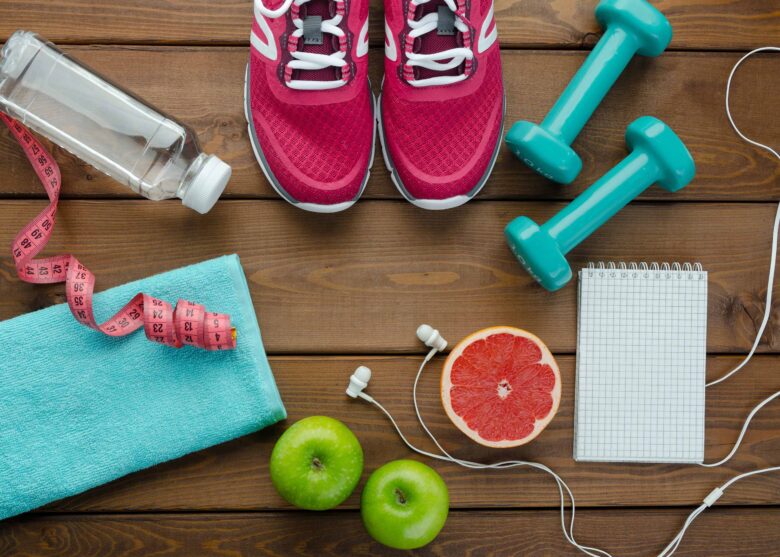In today’s fast-paced world, many people spend long hours sitting at desks, commuting, or relaxing in front of screens. While technology has made life more convenient, it has also contributed to a more sedentary lifestyle. Unfortunately, this lack of movement has serious consequences for both physical and mental health. Regular physical activity is one of the most effective ways to prevent disease, maintain energy levels, and promote overall well-being.
Exercise is not only about staying fit or achieving a certain body shape. It is about building habits that improve your quality of life, boost mental clarity, and keep your body functioning at its best. Whether you enjoy walking, cycling, swimming, or practicing yoga, staying active offers countless benefits that go far beyond physical appearance.
Physical Benefits of Regular Activity
Engaging in regular exercise helps the body perform at its highest potential. When you move regularly, your muscles grow stronger, your bones become denser, and your heart works more efficiently. Physical activity reduces the risk of chronic diseases such as heart disease, diabetes, obesity, and high blood pressure. It also improves lung capacity and supports healthy circulation, ensuring that oxygen and nutrients reach all parts of the body.
One of the most significant benefits of exercise is weight management. Regular movement helps burn calories, build lean muscle mass, and balance metabolism. Even simple activities like brisk walking or light jogging make a big difference in maintaining a healthy weight.
Mental Health Benefits
Physical activity is just as important for mental health as it is for physical health. Exercise stimulates the release of endorphins, which are often called the “feel-good” hormones. These chemicals reduce stress, ease anxiety, and elevate mood. People who engage in regular exercise often report better sleep, sharper focus, and higher self-confidence.
Exercise also serves as a natural stress reliever. Instead of bottling up tension from work, school, or personal life, moving your body provides an outlet to release that stress. Activities like yoga or tai chi combine movement with mindfulness, helping you feel calmer and more balanced.
Exercise and Longevity
Research consistently shows that people who engage in regular physical activity live longer and healthier lives. Exercise strengthens the immune system, lowers the risk of developing serious illnesses, and helps the body age more gracefully. Older adults who maintain an active lifestyle are more likely to enjoy independence, mobility, and vitality well into their senior years.
It is not necessary to engage in intense workouts to experience these benefits. Even moderate activities, such as gardening, walking, or light stretching, can extend life expectancy when practiced consistently. The key is to make movement a regular part of your daily routine.
Building Healthy Habits
The importance of physical activity lies not only in exercise itself but also in developing sustainable habits. Many people start strong with ambitious fitness goals but struggle to maintain them. The secret is to choose activities that you enjoy and that fit into your lifestyle.
If you dislike running, you can try dancing, swimming, or cycling. If you have a busy schedule, short workouts of ten to fifteen minutes can be just as effective as longer sessions when done consistently. Over time, small steps build momentum, and exercise becomes a natural part of life rather than a chore.
Social and Emotional Benefits
Staying active also creates opportunities for social connection. Group fitness classes, sports teams, or even walking with friends provide a sense of community and accountability. These interactions help reduce feelings of loneliness and build emotional resilience.
Exercising with others also adds motivation. Sharing goals, celebrating progress, and supporting one another can make the journey more enjoyable and sustainable. This sense of belonging is just as important as the physical benefits of exercise.
The Role of Physical Activity in Productivity
Many people underestimate how much regular exercise can improve productivity. Movement increases blood flow to the brain, which enhances focus, creativity, and problem-solving skills. Employees who incorporate activity into their daily routines often feel more energized and perform better at work.
Short exercise breaks during the day can refresh the mind, prevent burnout, and improve concentration. Students also benefit from exercise, as physical activity has been linked to better academic performance and sharper memory.
Overcoming Barriers to Exercise
Despite knowing the benefits of physical activity, many people struggle to stay consistent. Common barriers include lack of time, fatigue, or lack of motivation. The key is to start small and remove unnecessary pressure.
Instead of waiting for the perfect time or committing to long workouts, try to include movement in simple ways. Take the stairs instead of the elevator, walk during lunch breaks, or do light stretches while watching TV. By shifting the focus from perfection to consistency, exercise becomes less overwhelming and more achievable.
Frequently Asked Questions
How much exercise do I need each week?
Health experts recommend at least 150 minutes of moderate activity or 75 minutes of vigorous activity per week. This can be spread out over several days and does not need to be done all at once.
Can simple activities like walking really make a difference?
Yes, even simple activities like walking have powerful health benefits. Walking improves cardiovascular health, strengthens muscles, reduces stress, and helps maintain a healthy weight when done regularly.
Is it better to exercise in the morning or evening?
The best time to exercise is the time that works best for you. Some people feel more energized in the morning, while others prefer to exercise in the evening after work. What matters most is consistency.
Do I need a gym membership to stay fit?
No, you can stay active without a gym membership. Bodyweight exercises, home workouts, outdoor activities, and daily movement like walking or cycling are all effective.
What if I have no motivation to exercise?
Start with small, enjoyable activities and build from there. Setting realistic goals, finding a workout partner, or tracking your progress can help increase motivation.
Conclusion
The importance of regular physical activity cannot be overstated. Exercise is not just about appearance or fitness—it is about living a healthier, longer, and more fulfilling life. From reducing the risk of chronic disease to boosting mental health and productivity, physical activity impacts every aspect of well-being.
By making movement a daily habit, whether through walking, stretching, sports, or structured workouts, you invest in your future health and happiness. The path to a healthier life begins with small steps, and the best time to start is today.




